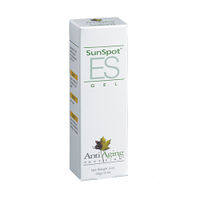Glycoalkaloids
Glycoalkaloids are a family of chemical compounds derived from alkaloids in which sugar groups are appended. There are several that are potentially toxic, most notably those which are the poisons commonly found in the plant species Solanum dulcamara.
See also :
Contents
Special Precautions of Glycoalkaloids
- Sale of a glycoalkaloid-based treatment marketed by Lane Labs USA Inc. for prevention of skin cancer was banned by the FDA in 2004 as an unapproved drug. Similar glycoalkaloid gels are now marketed as exfoliants. See : Exfoliation.
- Consult your doctor before using any presented information as a form of treatment. Use alternative cancer treatments as a supplement to treatments you receive from your doctor — not as a substitute for medical care. Apply the treatment only under control of an expert.
The benefits of Glycoalkaloids are
These are used mostly for skin cancers. Solasodine glycoalkaloid, also known as BEC, is the form of glycoalkaloid found in the Devil's Apple weed (Solanum Linnaeanum) and the one Dr. Cham found most effective. You can also find it in smaller amounts in the eggplant. Curaderm-BEC5 is a topical cream that can tackle basal cell and squamous cell carcinomas, plus benign keratoses. It's been described as a successful treatment for all non-melanoma skin cancers, and cures without leaving a scar. Lane Labs has done studies using their product "Skin Answer" and has had good results on squamous cell carcinomas. However, melanomas are not treated using this.
Recommended Products
Medical Disclaimer
This information is not meant to be substituted for medical advice. Always consult a medical professional regarding any medical problems and before undertaking any treatment or dietary changes.
